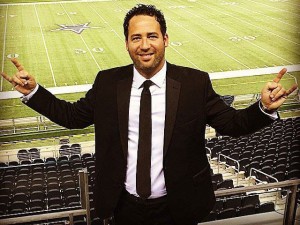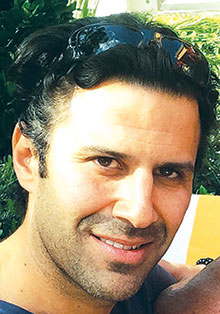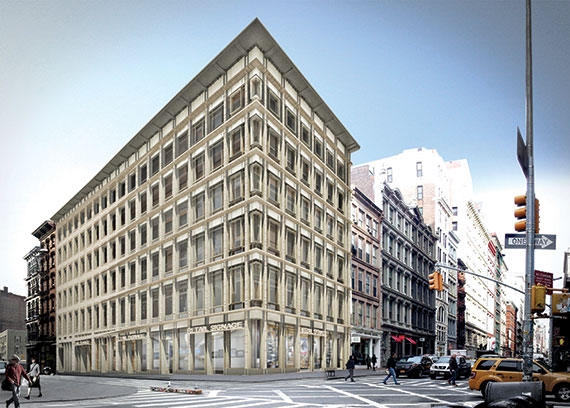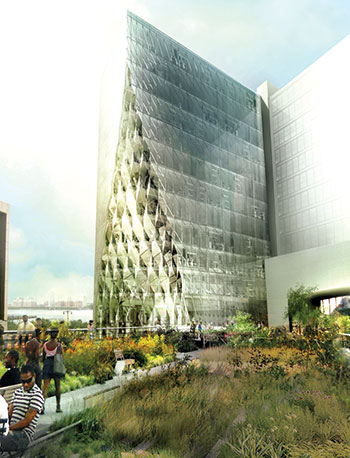The Meatpacking District is, of course, one of the city’s most buzzed-about neighborhoods. Now, one of the most buzzed-about new additions to the area is on its way: a 70,000-square-foot Restoration Hardware.
The high-end home furnishings store — which will replace the pioneering and now-shuttered French bistro Pastis — was the result of a $250 million mega deal.
And the company behind that deal, Aurora Capital, is fueling the continued transformation of a neighborhood that’s recently seen a flood of people headed to the High Line and the new Whitney Museum. In the 20-square-block Meatpacking District alone, the firm has more than 230,000 square feet of retail under development, by far more than anyone else.
And Aurora’s retail development tentacles expand beyond the Meatpacking District. Excluding mega-mall-like developments such as Hudson Yards and the World Trade Center, Aurora has one of the largest — if not the largest — retail-development pipelines in the city with more than 1 million square feet in the works.

Jared Epstein
“There are one, or two or maybe three players [in the city] who are so tuned into the market and so active that they in effect become the market for retail,” said Tavros Capital partner Nicholas Silvers, a landlord and developer who often compares notes with Aurora after they compete for projects.
In the Meatpacking District, Aurora, which is run by principals Bobby Cayre and Jared Epstein, was ahead of the curve in recognizing that the Whitney, the High Line and Google’s presence would change the neighborhood’s retail landscape, Silvers said.
“They knew all those pieces and connected them way before other people,” he said.
The under-the-radar firm has indeed been on a tear lately. It has 10 major projects under way or planned citywide and is teaming up with heavyweights, including Vornado Realty Trust.
The takedown
Cayre, 38, is a real estate scion. His father Stanley, along with his two brothers, Joseph and Kenneth, made a fortune in the video-distribution business and parlayed that into investing in real estate projects in New York, Chicago, Los Angeles and Miami in the 1980s.
Those investments were mostly passive, with the Cayres as minority partners.

Aurora Principal Bobby Cayre
The elder Cayre generation, for example, was part of a group of investors who bought a $3.2 billion, 99-year-lease for the World Trade Center in 2001, six weeks before the 9/11 terrorist attacks, and part of a team of investors that bought the Sears Tower in 2004. (Joseph Cayre, who heads Midtown Equities, is also an investor and co-founder in the residential brokerage Core).
In 2001, Bobby and his father co-founded Aurora to take on more active investments and lead development projects.
The company closed its first deal in 2003 at 568 Broadway at Prince Street in Soho, paying $87.5 million for a 320,000-square-foot office building that had a ground-floor retail lease with Eddie Bauer coming due.
Cayre and his team, who declined to comment, bought Eddie Bauer out and leased more than 18,500 square feet of the space to Forever 21. They then turned their attention to the opposite corner of the building, at Crosby Street, where they bought out second-floor office tenants paying roughly $30 per square foot and built a two-level, 40,000-square-foot space that now houses an Equinox gym, which is paying roughly $50 per foot on the upper level.
Cayre and his family come from the Syrian Jewish community with deep roots in the retail industry and Epstein, who joined Aurora in 2007, previously worked for retail broker Jeffrey Roseman at Newmark Grubb Knight Frank.
“They’re facile with retail,” said Paul Pariser, of Taconic Investment Partners, a major player in the neighborhood whose firm sold its headquarters at 111 Eighth Avenue to Google for $1.8 billion in 2010 and co-developed 837 Washington Street, home of Samsung, with Thor Equities.
Taconic and Aurora went “head to head” when they each bid on the land lease for the Meatpacking District’s long-sought-after Prince Lumber development site, Pariser said. “They took it down,” he added.
Prized partners
Aurora’s new development pipeline is growing in the retail world and beyond.
In Harlem, it’s teaming up with the Adjmi family (Bobby’s uncle and frequent partner) to develop a 150,000-square-foot, big-box space at 5 West 125th Street, where Bed Bath & Beyond is taking 30,000 square feet.
In Brooklyn, it’s constructing a 40,000 square-foot home for Whole Foods at 242 Bedford Avenue in Williamsburg, part of a 280,000-square-foot pipeline being developed with the Adjmis and other partners in that borough.

A rendering of 529 Broadway, which Aurora is developing with Jeff Sutton, Thor Equities and the Adjmi family. (credit: BKSK Architects)
And on one of the most prized corners in Soho, on Broadway and Prince, Aurora is co-developing with Jeff Sutton, Thor Equities and the Adjmis a 55,000-square-foot store that Nike is rumored to be eying.
But the company’s highest concentration of new development is in the Meatpacking District. On top of the 230,000 square feet of retail it’s constructing there, it also has more than 250,000 square feet of office space in the works. The firm is partnering with Vornado to build a 12-story office building atop a retail podium designed by architect Rafael Viñoly at the Prince Lumber site. It’s also developing a 10-story office building (with retail) known as the “Solar Carve” next to the High Line — one of three prime sites the company is developing in partnership with the estate of William Gottlieb.
Gottlieb, a disciple of Harry Helmsley, amassed a huge real estate portfolio that he left to his sister, Mollie Bender, when he died in 1999. But when Bender died eight years later and passed the estate on to her son Neil, it sparked a bitter family feud, with another family member unsuccessfully suing for control of the estate.
Aurora won a major coup when the estate chose to partner with it on several projects. “Every single major player in the New York City real estate had been trying to get at them forever,” Tavros’ Silvers said. “Obviously, the Gottlieb family could have chosen anyone to partner with.”

A rendering of the “Solar Carve” next to the High Line. The final tower will be slightly shorter, but will remain largely the same. (credit: Studio Gang Architects)
Aurora first partnered with the Gottlieb estate in 2012, when it brought the family in as an investor on a deal at Ninth Avenue and 13th Street. Aurora had picked up a ground lease on a pair of buildings there three years earlier and renovated them, signing the cosmetics chain Sephora and the trendy seafood restaurant Catch as tenants.
The two are currently developing 40 Tenth Avenue, the Solar Carve, and “Gansevoort Row,” 30,000 square feet of ground-floor retail stretching 465 feet along Gansevoort Street from Washington to Greenwich streets.
Broker Brian Katz of Katz & Associates — who represented Eastern Mountain Sports in 2008 when Aurora bought the company out its Soho lease to make way for a $100 million deal with Victoria’s Secret — described Aurora as quick to the punch.
“I had just picked up Eastern Mountain Sports and sent out a blast email. Within 60 seconds’ time, my cell phone rang and it was Jared,” he said. “It’s that mentality of, ‘Hey, go get it and take it down and don’t waste any time.'”
